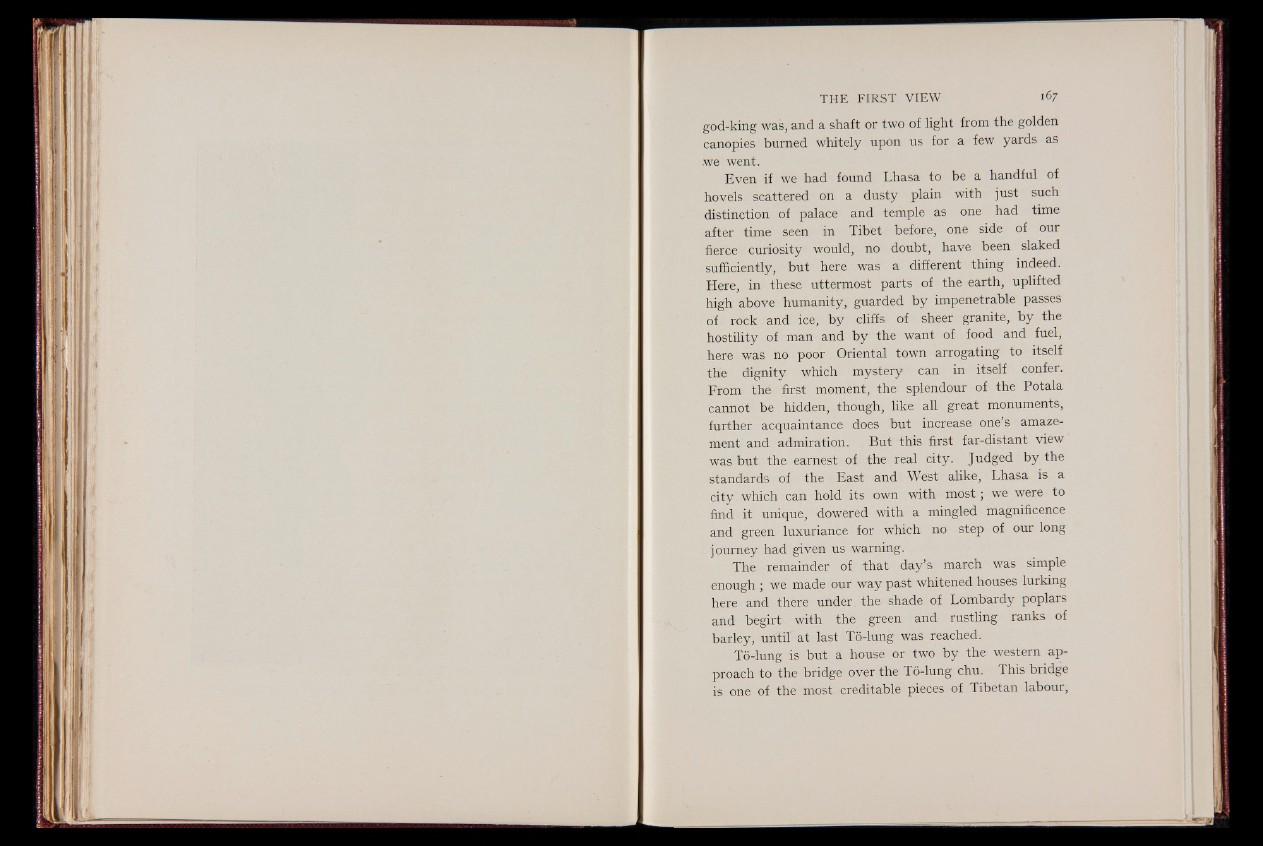
god-king was, and a shaft or two of light from the golden
canopies burned whitely upon us for a few yards as
we went.
Even if we had found Lhasa to be a handful of
hovels scattered on a dusty plain with just such
distinction of palace and temple as one had time
after time seen in Tibet before, one side of our
fierce curiosity would, no doubt, have been slaked
sufficiently, but here was a different thing indeed.
Here, in these uttermost parts of the earth, uplifted
high above humanity, guarded by impenetrable passes
of rock and ice, by cliffs of sheer granite, by the
hostility of man and by the want of food and fuel,
here was no poor Oriental town arrogating to itself
the dignity which mystery can in itself confer.
From the first moment, the splendour of the Potala
cannot be hidden, though, like all great monuments,
further acquaintance does but increase one s amazement
and admiration. But this first far-distant view
was but the earnest of the real city. Judged by the
standards of the East and West alike, Lhasa is a
city which can hold its own with m o s t; we were to
find it unique, dowered with a mingled magnificence
and green luxuriance for which no step of our long
journey had given us warning.
The remainder of that day’s march was simple
enough ; we made our way past whitened houses lurking
here and there under, the shade of Lombardy poplars
and begirt with the green and rustling ranks of
barley, untiTat last To-lung was reached.
To-lung is but a house or two by the western approach
to the bridge over the To-lung chu. This bridge
is one of the most creditable pieces of Tibetan labour,